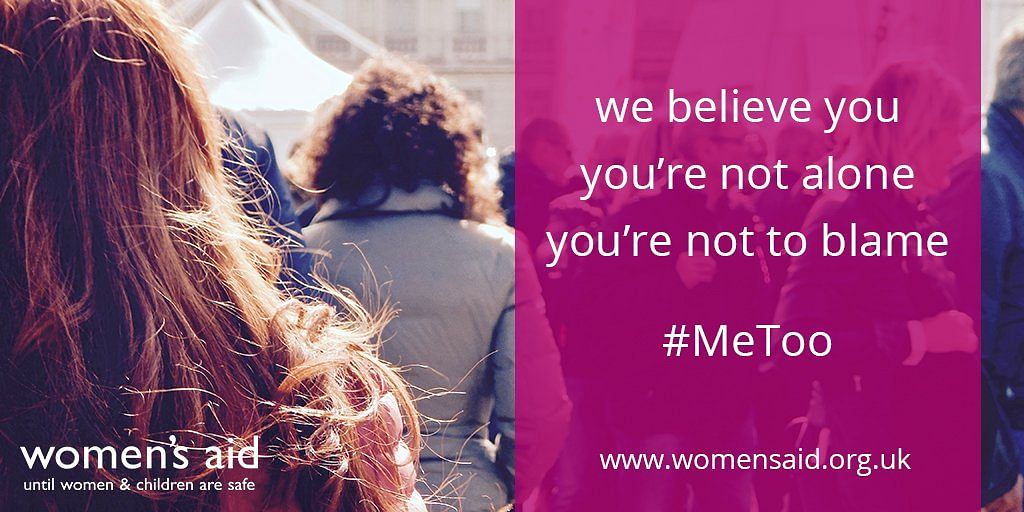The ‘Me too’ campaign, started by actress Alyssa Milano in response to the Harvey Weinstein scandal, saw a large number of Indians narrate their experiences.
New Delhi: Monday morning, India woke up to an outpouring of support for victims and survivors of sexual assault embodied in two simple words – “Me too”.
What started as a response on Twitter by American actress Alyssa Milano to the Harvey Weinstein scandal quickly turned into a movement of solidarity with women, and men, sharing their personal experiences of sexual assault and abuse on Facebook and Twitter.
The campaign follows the 13 October online campaign #WomenBoycottTwitter, which broke out after actress Rose McGowan, an active participant in calling out Weinstein on sexual assault, had her Twitter account locked down for leaking a private number online.
This campaign, which featured big names like Chrissy Teigen and Mark Ruffalo, nudged a response from Twitter where it clarified the reason for suspending McGowan’s account, but also addressed the need for revising its policies when it comes to handling abuse. Twitter also encouraged users to continue voicing the truth through the platform.
Now, #MeToo has become a rallying cry that not only acts as a symbol of global unity, but also one of public emancipation from the silence, shame, and fear that has characterised such experiences in the past.
Silent no more
The movement has given many Indian women the space and encouragement to come out with their own experiences of sexual harassment. Some women penned down such instances from their childhood, while some shed light on their daily struggles. Women also expressed the immediate need for change in a society that stigmatised and silenced them for too long.
“We will rise, we will scream from the rooftops if we have too. We will whisper it gently to the ones who are suffering currently. Me too….Me too. We will continue until every survivor is empowered to speak truth to power and until the world is ready to listen to us,” said one woman.
Strength in numbers
Speaking to ThePrint about the social media campaign, Urvashi Butalia, co-founder of feminist publishing pioneer Kali for Women, said: “Post the 2012 [Delhi gangrape] case, women are not necessarily only speaking out on social media. Many of them are taking the step of reporting to police stations, even if they know the environment to be hostile.”
Butalia added: “It’s very lonely to be a lone voice, it makes you extremely vulnerable, especially if you can be identified. So, most of all, the anonymity and the numbers really help in speaking out.”
Theatre personality Danish Husain, most famous as an actor in the film Dhobi Ghat, who testified against Mahmood Farooqui in the alleged rape case against the film director, said the momentum for such campaigns had been building up for a while.
“I think it’s high time we realise what kind of oppressive patriarchal societies we live in, and how pervasive the rape culture is. It is important for everyone to realise that women need to breathe as much as anybody else,” Husain told ThePrint.
“I think it’s not something that happened overnight, it is something that has been slowly building for the last decade or more. There have been some trigger points, like the 2012 rape case, or the Harvey Weinstein case, or the Bill Cosby case. These have only amplified the movement, and brought it to the fore.”
